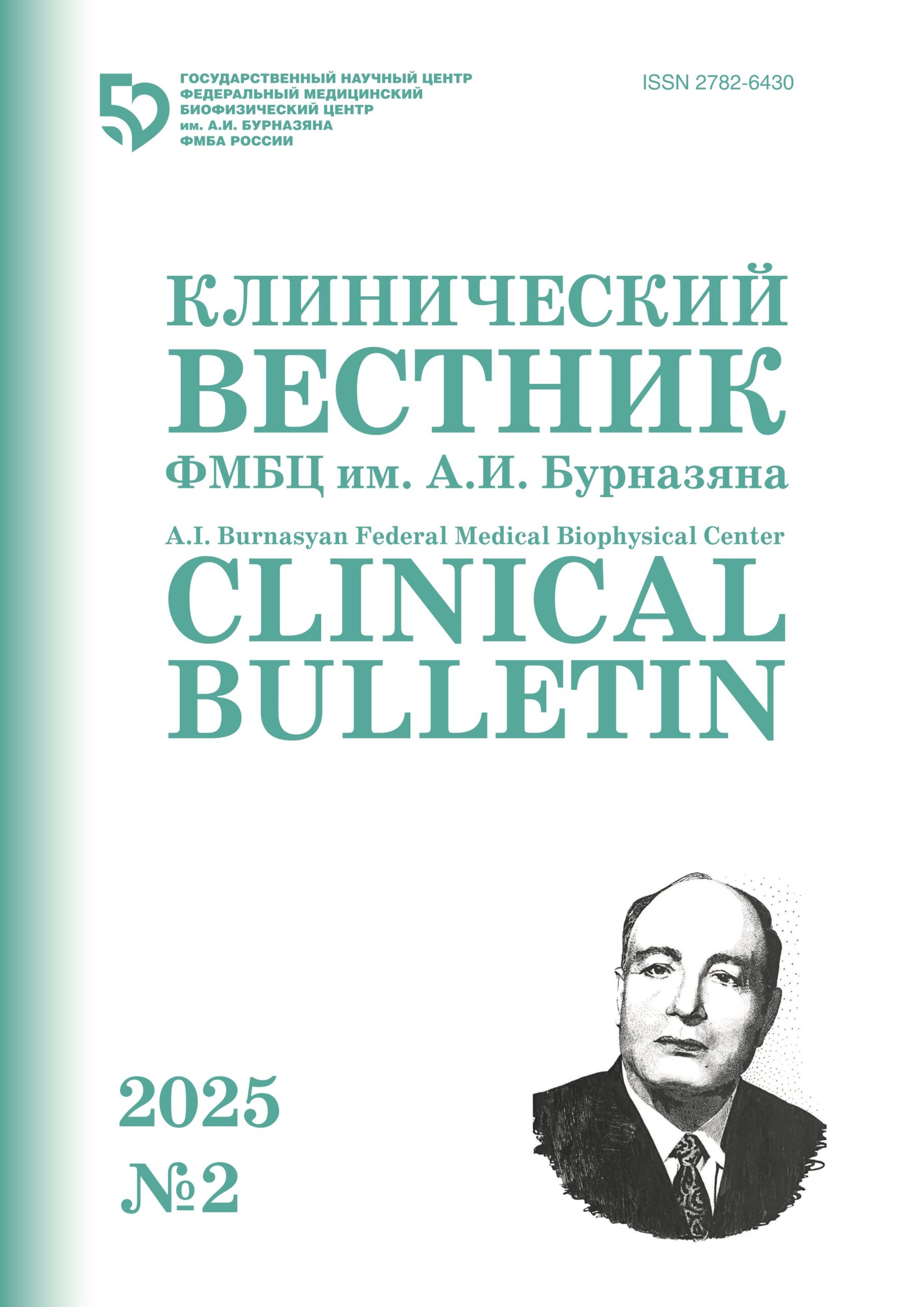A.I. Burnasyan FMBC clinical bulletin. 2023 № 2
N.A. Fedotova, E.V. Bril., O.S. Zimnyakova, M.A. Anikina
Dementia. Changing Medical Terminology in the Field
of Cognitive Disorders as a Method of Combating Stigma
A.I. Burnasyan Federal Medical Biophysical Center, Moscow, Russia
Contact person: Fedotova Natalya Aleksandrovna: natali181087@mail.ru
Abstract
Insufficient amount of public awareness and knowledge about dementia often leads to stigma, which has significant negative consequences for people with dementia, as well as for their caregivers. Stigma interferes with proper patient care, leads to worse prognosis for people with dementia, increases their social isolation and reduces patients’ access to rehabilitation resources. Also, people with mild cognitive disorder (MCD) may suffer from social isolation and internal stress even with mild cognitive decline. Thus, the option of moving away from medical terminology should be considered, in an attempt to reduce the negative impact on people’s consciousness.
Keywords: dementia, mild cognitive impairment, dementia stigmatization, neurocognitive minor disorder, neurocognitive major disorder, Alzheimer disease
For citation: Fedotova NA, Bril EV, Zimnyakova OS, Anikina MA. Dementia. Changing Medical Terminology in the Field of Cognitive Disorders as a Method of Combating Stigma. A.I. Burnasyan Federal Medical Biophysical Center Clinical Bulletin. 2023.2:38-41. (In Russian) DOI: 10.33266/2782-6430-2023-2-38-41
REFERENCES
1. Vasenina E.E., Levin O.S., Sonin A.G. Modern Trends in Epidemiology of Dementia and Management of Patients with Cognitive Impairment. Zhurnal Nevrologii i Psikhiatrii im. S.S. Korsakova = S.S. Korsakov Journal of Neurology and Psychiatry. 2017;117;6-2:87–95. Doi: 10.17116/jnevro20171176287-95 (In Russ.).
2. Vasenina E.E., Gutorova D.A, Smirnova I.M., Levin O.S. Predementia Cognitive Disorders: Modern Approaches to Terminology, Diagnosis and Treatment. Farmateka = Farmateka. 2018;14:8-16. DOI: DOI: https://dx.doi.org/10.18565/pharmateca.2018.14.8-16 (In Russ.).
3. Levin O.S. Predementia Neurocognitive Impairment in the Elderly. Zhurnal Nevrologii i Psikhiatrii im. S.S. Korsakova = S.S. Korsakov Journal of Neurology and Psychiatry. 2019;119;9-2:10-17. DOI: 10.17116/jnevro201911909210 (In Russ.).
4. Levin O.S., Vasenina E.E. Diagnostika i Lecheniye Kognitivnykh Narusheniy i Dementsii = Diagnosis and Treatment of Cognitive Impairment and Dementia. Guidelines. Moscow, MEDprecs-Inform Publ., 2015. 80 p. ISBN 978-5-00030-241-5 (In Russ.).
5. Minett T., Brayne C. Epidemiology of Dementia. Oxford Textbook of Cognitive Neurology and Dementia. 2016. P. 211–20. Doi:10.1093/med/9780199655946.003.0020.
6. Prince M.J., Wimo A., Guerchet M.M., Ali G.C., Wu Y-T., Prina M. World Alzheimer Report 2015. The Global Impact of Dementia: An Analysis of Prevalence, Incidence, Cost and Trends. Alzheimer’s Disease International. URL: http://www.alz.co.uk/research/world-report-2015.
7. Alzheimer’s Association. 2013 Alzheimer’s Disease Facts and Figures. Alzheimer’sandDementia. 2013;9;2:208–245.
8. Rewerska-Juśko M., Rejdak K. Social Stigma of People with Dementia. J. Alzheimers Dis. 2020;78;4:1339-1343. doi: 10.3233/JAD-201004.
9. World Alzheimer Report 2019, Attitudes to Dementia. URL: https://www.alzheimer-waw.pl/wp-content/uploads/2019/.
10. Blay S.L., Toledo Pisa Peluso E. Public Stigma: the Community’s Tolerance of Alzheimer Disease. Am. J. Geriatr. Psychiatry. 2010;18;2:163-171. doi: 10.1097/JGP.0b013e3181bea900.
11. Sloane P.D., Zimmerman S., Suchindran C., Reed P., Wang L., Boustani M., Sudha S. The Public Health Impact of Alzheimer’s Disease, 2000-2050: Potential Implication of Treatment Advances. Annu. Rev. Public. Health. 2002;23:213-231. doi: 10.1146/annurev.publhealth.23.100901.140525.
12. Treatments, Alzheimer’s Association. URL: https://www.alz.org/ alzheimers-dementia/treatments#: :text=While%20there%20is%20no%20cure,that%20may%20help%20treat%20 symptoms.
13. Rosin E.R., Blasco D., Pilozzi A.R., Yang L.H., Huang X. A Narrative Review of Alzheimer’s Disease Stigma. J. AlzheimersDis. 2020;78;2:515-528. doi: 10.3233/JAD-200932.
14. Epley R.J., McCaghy C.H. The Stigma of Dying: Attitudes toward the Terminally Ill // OMEGA – Journal of Death and Dying. 1978;8;4:379–393. https://doi.org/10.2190/5J49-DX9U-05R7-V6JD.
15. Stites S.D., Milne R., Karlawish J. Advances in Alzheimer’s Imaging Are Changing the Experience of Alzheimer’s Disease. Alzheimers Dement (Amst). 2018;10:285-300. doi: 10.1016/j.dadm.2018.02.006.
16. Cohen M., Werner P., Azaiza F. Emotional Reactions of Arab Lay Persons to a Person with Alzheimer’s Disease. Aging. Ment. Health. 2009;13;1:31-37. doi: 10.1080/13607860802154440.
17. Lion K.M., Szcześniak D., Bulińska K., Evans S.B., Evans S.C., Saibene F.L., et al. Do People with Dementia and Mild Cognitive Impairments Experience Stigma? A Cross-Cultural Investigation between Italy, Poland and the UK. Aging. Ment. Health. 2020;24;6:947-955. doi: 10.1080/13607863.2019.1577799.
18. Beard R.L., Neary T.M. Making Sense of Nonsense: Experiences of Mild Cognitive Impairment. Sociol. Health. Illn. 2013;35;1:130-146. doi: 10.1111/j.1467-9566.2012.01481.x.
19. Schermer M.H.N., Richard E. On the Reconceptualization of Alzheimer’s Disease. Bioethics. 2019;33;1:138-145. doi: 10.1111/bioe.12516.
20. Link B.G., Cullen F.T., Struening E., Shrout P.E., Dohrenwend B.P. A Modified Labeling Theory Approach to Mental Disorders: An Empirical Assessment. American Sociological Review. 1989;54;3:400–423. https://doi.org/10.2307/2095613.
21. Morris J.L., Hu L., Hunsaker A., Liptak A., Seaman J.B., Lingler J.H. Patients’ and Family Members’ Subjective Experiences of a Diagnostic Evaluation of Mild Cognitive Impairment. J. Patient. Exp. 2020;7;1:124-131. doi: 10.1177/2374373518818204.
22. Schermer M.H.N., Richard E. On the Reconceptualization of Alzheimer’s Disease. Bioethics. 2019;33;1:138-145. doi: 10.1111/bioe.12516.
23. Bond J., Corner L., Lilley A., Ellwood C. Medicalization of Insight and Caregivers’ Responses to Risk in Dementia. Dementia. 2002;1;3:313-328. doi:10.1177/147130120200100304.
24. Maruta T., Matsumoto C. Renaming Schizophrenia. Epidemiol. Psychiatr. Sci. 2019;28;3:262-264. doi: 10.1017/S2045796018000598.
25. Koike S., Yamaguchi S., Ojio Y., Shimada T., Watanabe K., Ando S. Long-Term Effect of a Name Change for Schizophrenia on Reducing Stigma. Soc. Psychiatry. Psychiatr. Epidemiol. 2015;50;10:1519-1526. doi: 10.1007/s00127-015-1064-8.
26. Koike S., Yamaguchi S., Ojio Y., Ohta K., Ando S. Effect of Name Change of Schizophrenia on Mass Media Between 1985 and 2013 in Japan: A Text Data Mining Analysis. Schizophr Bull. 2016;42;3:552-559. doi: 10.1093/schbul/sbv159.
27. Kurz A.F., Lautenschlager N.T. The Concept of Dementia: Retain, Reframe, Rename or Replace? International Psychogeriatrics. 2010;22;1:37–42. https://doi.org/10.1017/S1041610209991013.
28. American Psychiatric Association. Diagnosticand Statistical Manual of Mental Disorders. Washington, DC, American Psychiatric Association, 2013.
29. Sachdev P.S., Blacker D., Blazer D.G., Ganguli M., Jeste D.V., Paulsen J.S., Petersen R.C. Classifying Neurocognitive Disorders: the DSM-5 Approach. Nat. Rev. Neurol. 2014;10;11:634-642. doi: 10.1038/nrneurol.2014.181.
Conflict of interest. The authors declare no conflict of interest.
Financing. The study had no sponsorship.
Contribution. Article was prepared with equal participation of the authors.
Article received: 25.03.2023. Accepted for publication: 26.04.2023


